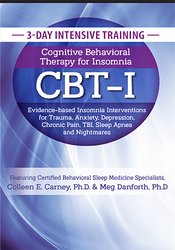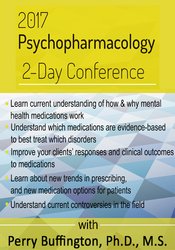Buy Mass Violence -Risk Identification and Intervention Strategies for Potentially Violent Clients and Effective Treatment Techniques for Survivors – Kathryn Seifert Course at GBesy. We actively participate in Groupbuys and are committed to sharing knowledge with a wider audience. Rest assured, the quality of our courses matches that of the original sale page. If you prefer, you can also buy directly from the sale page at the full price (the SALEPAGE link is directly provided in the post).
Mass Violence -Risk Identification and Intervention Strategies for Potentially Violent Clients and Effective Treatment Techniques for Survivors by Kathryn Seifert,
Salepage link: At HERE. Archive:
- Faculty:
- Kathryn Seifert
- Duration:
- 5 Hours 58 Minutes
- Format:
- Audio and Video
- Copyright:
- Oct 11, 2018
Description
Following acts of mass violence clinicians are often left feeling powerless, anxious and looking for answers.
Why does this happen? Can I identify the warning signs and Intervene with those at-risk of committing violent acts? What can I do to help survivors facing the devastating scars of trauma, anxiety, panic depression and grief left behind by unspeakable violence?
A must-watch for mental health professionals working in an era of pervasive violence, this critical recording will explore the connection between mental health issues and violence, analyze research and research limitations surrounding its study, and contemplate the role of clinicians in both the prevention and aftermath of mass violence.
Better still, this seminar will go beyond the research and give you detailed clinical guidance on working with a variety of populations and ages, including children, adolescents, parents and community members who may walk into your office as a person at-risk of committing a violent act or as a survivor of one.
YOU CAN’T AFFORD TO BE UNPREPARED
Buy today and feel ready and able to identify the risk factors, effectively intervene with clients at-risk of performing violent acts, and provide hope and healing to those whose lives have been engulfed by mass violence.
Handouts
| Manual – Mass Violence (5.60 MB) | 72 Pages | Available after Purchase |
Outline
Post-Traumatic Stress Disorder vs. Complex PTSD: Understand the Difference
- Acute traumatic stress, PTSD, Complex PTSD
- Diagnostic clarification and differential diagnosis
- Key contributing factors of Complex PTSD
- The common symptoms of Complex PTSD
The Neurobiology of PTSD: Beyond Fight and Flight
- Polyvagal Theory
- 6 Stages of trauma response
- Heart Rate Variability and the Social Nervous System
- Interpersonal Neurobiology
- Psychobiological regulation
- Rupture and repair
- Implications of childhood neglect or abuse
- Neuroplasticity and Complex PTSD
Psychological and Physiological Repercussions of Complex PTSD: A Deeper Understanding for Accurate Assessment
- Intrusive symptoms and anxiety
- Emotional dysregulation: Outbursts of anger and debilitating shame
- Avoidance symptoms and phobic reactions to traumatic material
- Interpersonal problems and difficulty being close to others
- Dissociation and dysregulation
- Cognitive distortions and compromised meaning making
- Physical health problems, ACE factors and painful somatization
- Preverbal and nonverbal memories
- Disturbing somatic sensations
- Depressive symptoms
- Learned helplessness and shame
Therapeutic Interventions for Complex PTSD: Summary of Effective Therapies
- Psychodynamic and Relational Therapy
- Psychobiological perspectives: Polyvagal Theory
- Cognitive Behavioral Therapy (CBT)
- Dialectical Behavioral Therapy (DBT)
- EMDR Therapy
- Somatic Psychology
- Parts Work Therapy: Work with Ego States
- Complementary and Alternative Medicine (CAM): mindfulness, yoga, and integrative healthcare
Integrative Treatment for Complex PTSD: Putting it All Together for an Effective Treatment Plan
- A biopsychosocial approach: Partner with clients to build a health care team
- Goal of treatment: Memory retrieval vs. trauma recovery
- History taking: Identify chronic, repeated, and/or developmental trauma events
- Cultural factors and Complex PTSD
- Recognize attachment Injuries
- How to work with transgenerational trauma
- Identify parts, ego states and defenses
- Assess for dissociation
- Mutual regulation and relational repair in therapy
- Prepare for trauma processing: Develop resources and stability
- Work through traumatic memories: EMDR and Somatic Psychology
- Grief work in Complex PTSD
- Integrate and Instill positive change
Experiential Interventions: Mind-Body Practices for Clients with Complex PTSD
- Conscious breathing for self-regulation
- Grounding and sensory awareness
- Containment: Reclaim choice and control
- Build imaginal allies
- Cultivate mindfulness, acceptance, and self-compassion
- Somatic interventions: Titration, sequencing, and somatic re-patterning
- Bilateral stimulation and dual attention in EMDR Therapy
- Potential risks and limitations of mind-body therapies
Fostering Resilience: For Post-Traumatic Growth and Healing
- Learn the 6 Pillars of Resilience
- Trauma recovery and the bell curve
- Resilience as a process and an outcome
- Help clients move from learned helplessness to learned optimism
- Post-Traumatic Growth: Help clients reach their potential
Vicarious Trauma: Improve Client Outcomes Through Effective Self-Care
- Identify resources that improve your clinical skills
- In-session self-care to improve focus on the client and therapeutic process
- Burnout prevention techniques
Faculty

Kathryn Seifert, Ph.D Related seminars and products: 2
CEO and Founder
CARE2, LLC
Kathryn Seifert, Ph.D, is a psychologist in Maryland and one of the leading experts in the fields of multi-victim violence, bullying, trauma and mental health related violence in the United States. Dr. Seifert specializes in the assessment and treatment of individuals who are at risk for violence and those who are emotionally disturbed, behaviorally disordered, victimized, delinquent, and/or are suffering from attachment disorders.
Dr. Seifert has appeared on CNN, Discovery ID, and Fox News and consults with numerous public agencies. She testifies in courts as an expert on the maltreatment of children and has a blog, Stop the Cycle, on Psychologytoday.com with over a half a million readers.
Dr. Seifert has written two books, How Children Become Violent (Acanthus, 2006) and Youth Violence: Theory, Prevention, and Intervention (Springer, 2015). In these two books, she wrote about the groundbreaking research such as the ACE’s research out of the CDC, connecting child maltreatment, delays in the developmental of coping skills, and youthful violent behaviors. Dr. Seifert also developed the CARE-2, Child and Adolescent Risk/Needs Evaluation.
Speaker Disclosure:
Financial: Kathryn Seifert is the Chief Executive Officer and Founder of Eastern Shore Psychological Services; and CARE-2, LLC. She receives royalties as an author of Acanthus Publishing and Springer Publishing. Dr. Seifert receives a speaking honorarium from PESI, Inc.
Non-financial: Kathryn Seifert is a member of the American Psychological Association; and the Maryland Psychological Association. She writes a blog, Stop the Cycle, on Psychologytoday.com.
Buy the Mass Violence -Risk Identification and Intervention Strategies for Potentially Violent Clients and Effective Treatment Techniques for Survivors – Kathryn Seifert course at the best price at GBesy.. After your purchase, you will get access to the downloads page. You can download all the files associated in your order at here and we will also send a download notification email via your mail.
Unlock your full potential with Mass Violence -Risk Identification and Intervention Strategies for Potentially Violent Clients and Effective Treatment Techniques for Survivors – Kathryn Seifert courses. our courses are designed to help you excel.
Why wait? Take the first step towards greatness by purchasing Mass Violence -Risk Identification and Intervention Strategies for Potentially Violent Clients and Effective Treatment Techniques for Survivors – Kathryn Seifert courses today. We offer a seamless and secure purchasing experience, ensuring your peace of mind. With our trusted payment gateways, Stripe and PayPal, you can confidently complete your transaction knowing that your financial information is protected.
Stripe, known for its robust security measures, provides a safe and reliable payment process. With its encrypted technology, your sensitive data remains confidential throughout the transaction. Rest assured that your purchase is protected.
PayPal, a globally recognized payment platform, offers an additional layer of security. With its buyer protection program, you can feel confident in your purchase. PayPal ensures that your financial details are safeguarded, allowing you to focus on your learning journey.
Is it secure? to Use of?
- Your identity is completely confidential. We do not share your information with anyone. So it is absolutely safe to buy the Mass Violence -Risk Identification and Intervention Strategies for Potentially Violent Clients and Effective Treatment Techniques for Survivors – Kathryn Seifert course.
- 100% Safe Checkout Privateness coverage
- Communication and encryption of sensitive knowledge
- All card numbers are encrypted using AES at relaxation-256 and transmitting card numbers runs in a separate internet hosting atmosphere, and doesn’t share or save any data.
How can this course be delivered?
- After your successful payment this “Mass Violence -Risk Identification and Intervention Strategies for Potentially Violent Clients and Effective Treatment Techniques for Survivors – Kathryn Seifert course”, Most of the products will come to you immediately. But for some products were posted for offer. Please wait for our response, it might take a few hours due to the time zone difference.
- If this happens, please wait. The technical department will process the link shortly after. You will receive notifications directly by e-mail. We appreciate your wait.
What Shipping Methods Are Available?
- You will receive a download link in the invoice or YOUR ACCOUNT.
- The course link always exists. use your account to login and download the Mass Violence -Risk Identification and Intervention Strategies for Potentially Violent Clients and Effective Treatment Techniques for Survivors – Kathryn Seifert course whenever you need.
- You only need to visit a single link, and you can get all the Mass Violence -Risk Identification and Intervention Strategies for Potentially Violent Clients and Effective Treatment Techniques for Survivors – Kathryn Seifert course content at once.
- You can do your learning online. You can be downloaded for better results and can study anywhere on any device. Make sure your system does not sleep during the download.
How Do I Track Order?
- We always notice the status of your order immediately after your payment. After 7 days if there is no download link, the system will automatically complete your money.
- We love to hear from you. Please don’t hesitate to email us with any comments, questions and suggestions.
![GBesy [GB] GBesy [GB]](https://www.gbesy.com/wp-content/uploads/2023/05/gbesy-Logo-full-100.png)



 Purchase this course you will earn
Purchase this course you will earn 











Reviews
There are no reviews yet.